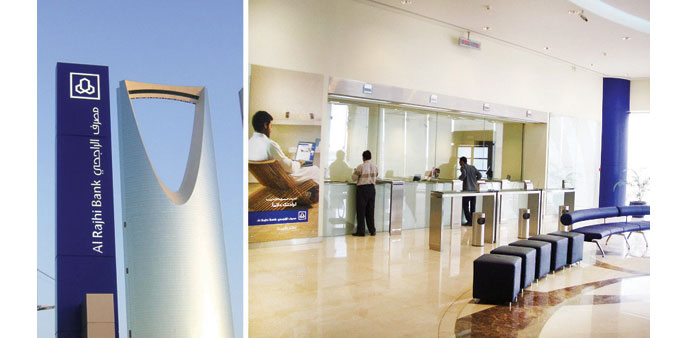The Saudi benchmark yesterday retreated 1.6% to 6,931 points, erasing most of Thursday’s 2.6% jump. Bank sector heavyweight Al Rajhi slumped 3.7%.
Reuters
Dubai
Stock markets in Saudi Arabia and Dubai fell back yesterday after oil prices slumped further, while Abu Dhabi and Egypt were buoyed by banking shares.
The Qatar Stock Exchange was closed yesterday for the National Day holiday.
Brent crude settled at $36.88 a barrel on Friday after hitting a session low of $36.41, just 21 cents above a 2004 bottom. Meanwhile, global bourses sank on economic growth worries, with the Dow closing over 2% lower.
In response, the Saudi benchmark retreated 1.6% to 6,931 points, erasing most of Thursday’s 2.6% jump. Sellers dumped blue chips in the first hour and mostly sat out the rest of the session, waiting for the announcement of the kingdom’s 2016 state budget, which is expected in the coming week and may include major spending cuts.
Saudi Basic Industries, the bourse’s largest company by market value, declined 2.5%. Bank sector heavyweight Al Rajhi slumped 3.7%.
Banking stocks had surged on Thursday on hopes that higher interest rates would improve lending margins, but “the so-called market euphoria following the US interest rate hike on Wednesday was short-lived,” said a Jeddah-based trader.
“Some traders turned a quick profit and sold positions, and they are not willing to re-enter the market until the budget is announced.”
Dubai’s index, which had jumped 2.9% on Thursday, fell back 1.5% in thin trade on Sunday.
“The market lacked momentum to carry on trading higher as traders turned a quick profit and sold off, taking their cue from global markets that closed lower on Friday,” said a regional fund manager.
Real estate related stocks, which make up most of Dubai’s market value, declined. Arabtec and DAMAC Properties led the retreat, tumbling 3.7% and 3.0% respectively.
Abu Dhabi’s index recouped early losses and closed 0.2% higher in the heaviest trade since the beginning of the month, gaining for the third straight session. First Gulf Bank rose 1.6%, and is up 11.7% over the past week.
Dana Gas, the most heavily traded stock on the bourse, jumped 11.1% in its heaviest trading since July.
The surge was partly due to a “catch-up effect” after Dana’s shares were suspended on Thursday, and partly because of a statement issued by Dana yesterday reiterating that it had settled a business dispute with Germany’s RWE and clarifying details of the settlement, said Sanyalaksna Manibhandu, senior analyst at Abu Dhabi’s NBAD Securities.
Cairo’s benchmark climbed 0.6% in its fourth straight day of gains, as Commercial International Bank added 1.9%. On Thursday, it had jumped 5.6% after agreeing to sell investment banking subsidiary CI Capital to Orascom Telecom for 1bn Egyptian pounds ($128mn).
Orascom fell 1.7%, erasing some of Thursday’s gains, when it surged 11.1%. Orascom Telecom plans to merge CI Capital with Beltone Financial, which it bought last month for almost 650mn pounds; Beltone rose 10% yesterday.
Unlike most its Gulf counterparts, which hiked interest rates last week, Egypt’s central bank made no decision on interest rates at its Thursday monetary policy committee meeting and said it would reconvene on December 24 following consultations with the government on inflation and growth.
The meeting was the first under the central bank’s new governor, Tarek Amer, who has led a drive to indirectly support the Egyptian pound and supply banks with foreign currency liquidity despite dwindling foreign reserves.
Elsewhere in the Gulf, Kuwait’s index fell 0.9% to 5,572 points; Bahrain’s index slipped 0.2% to 1,195 points, while Oman’s index slid 0.1% to 5,355 points.

